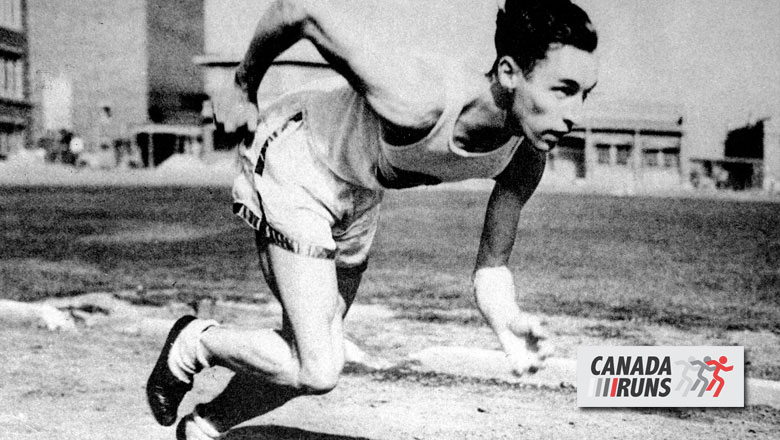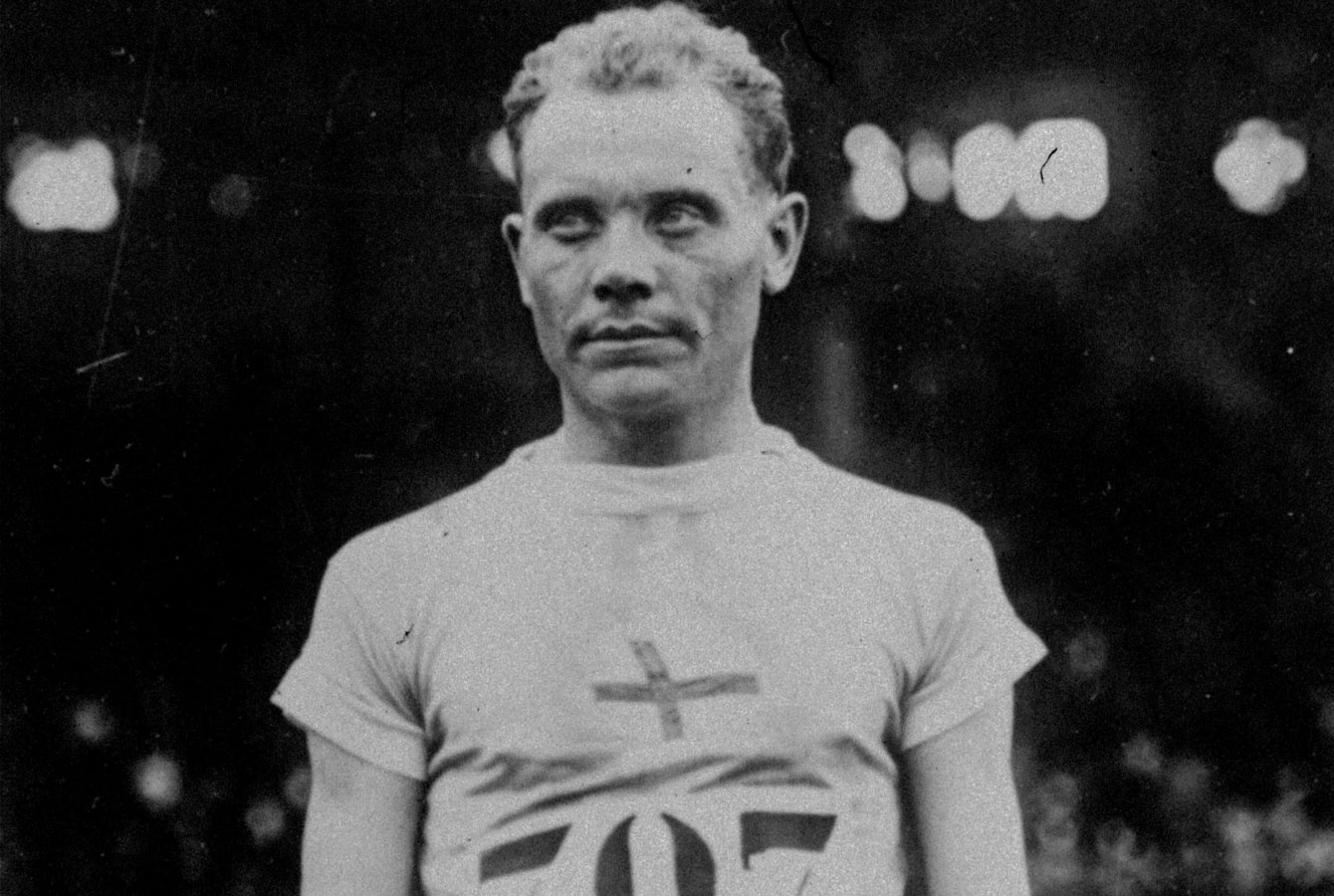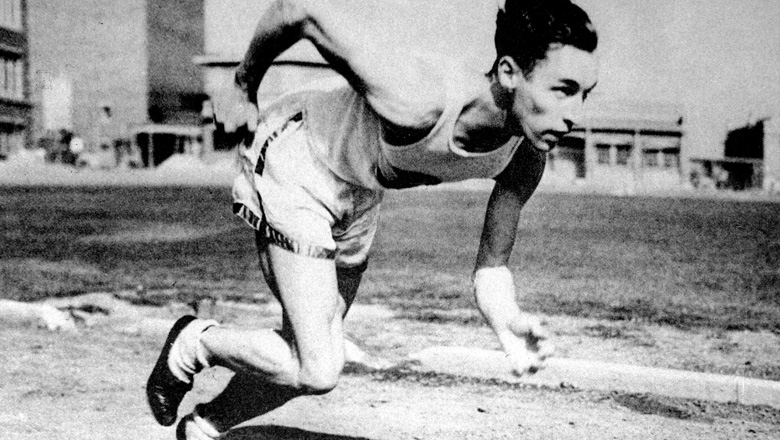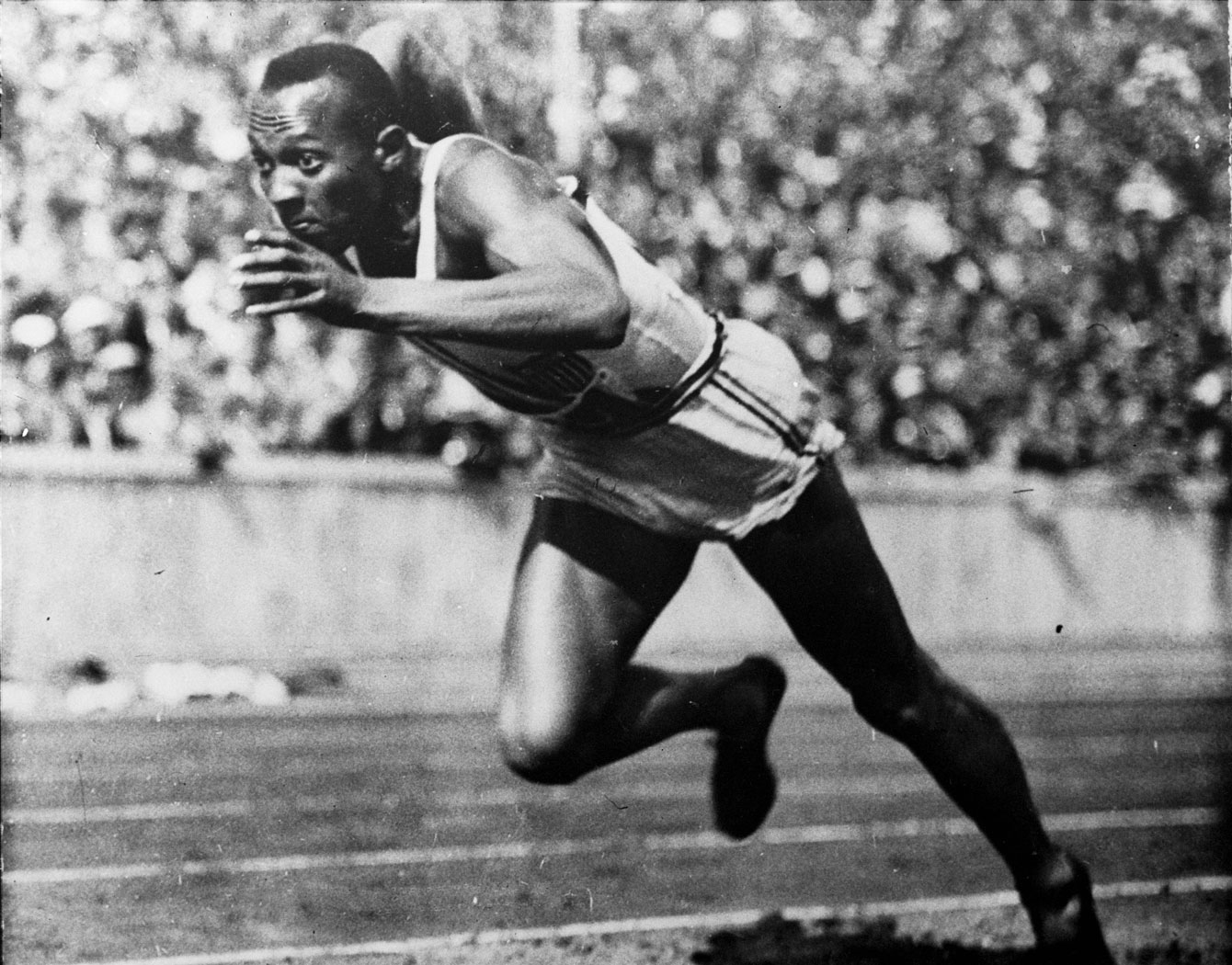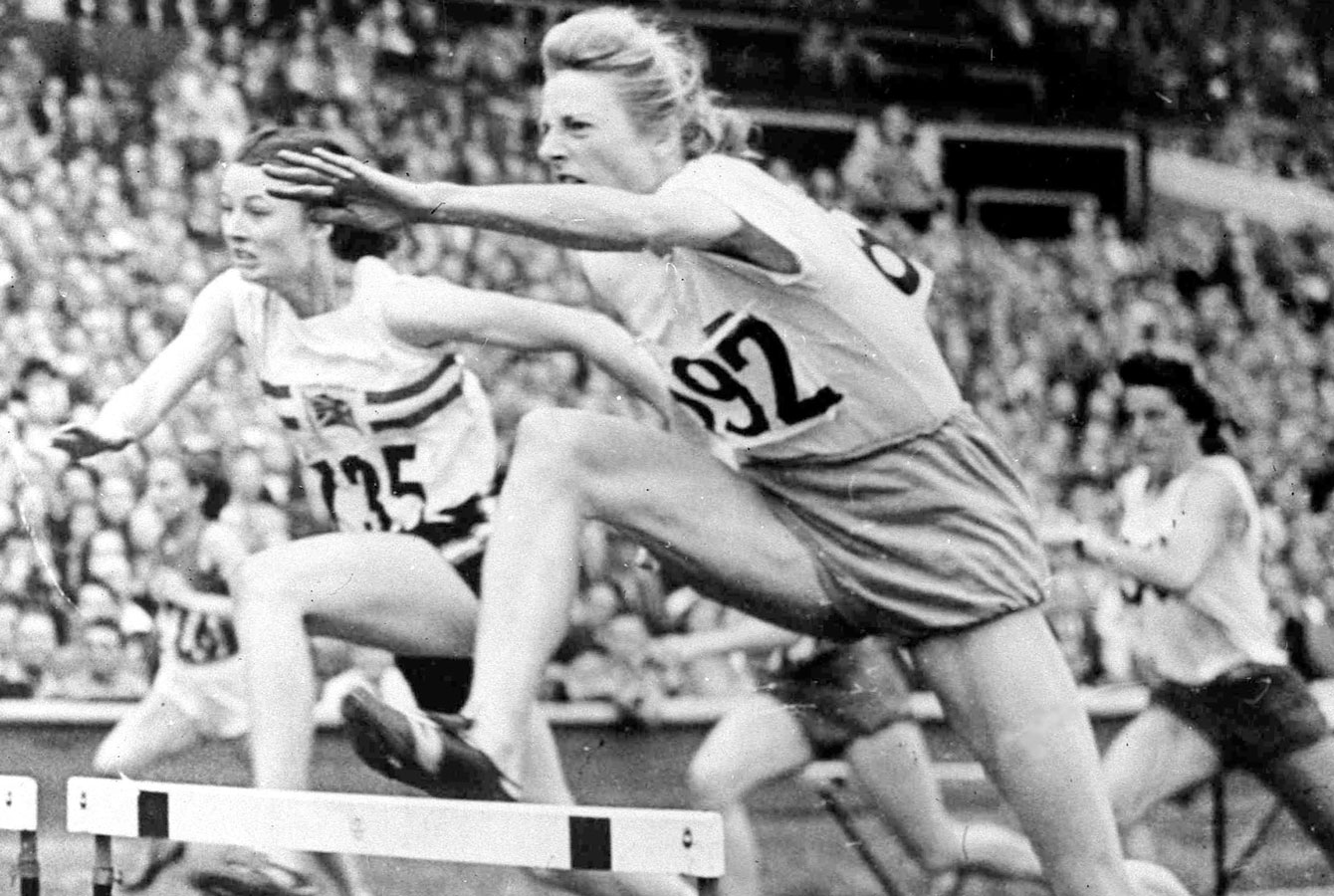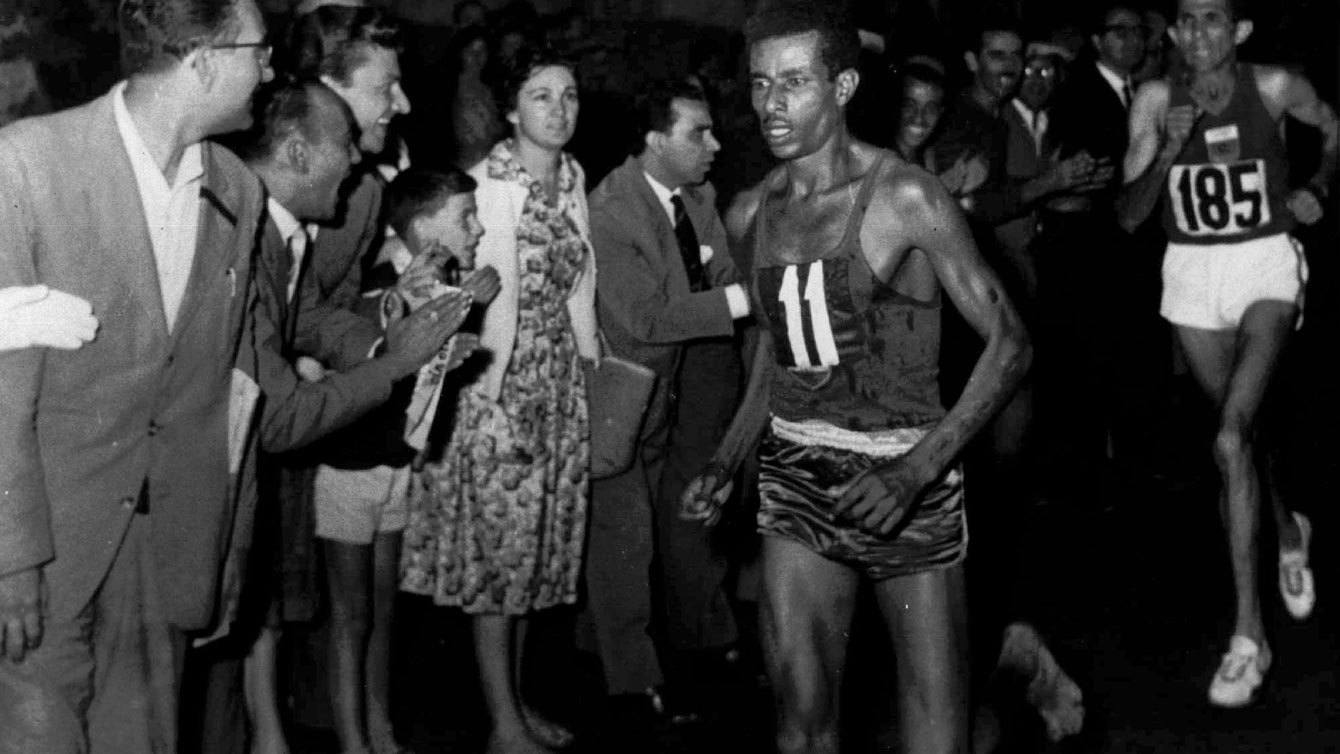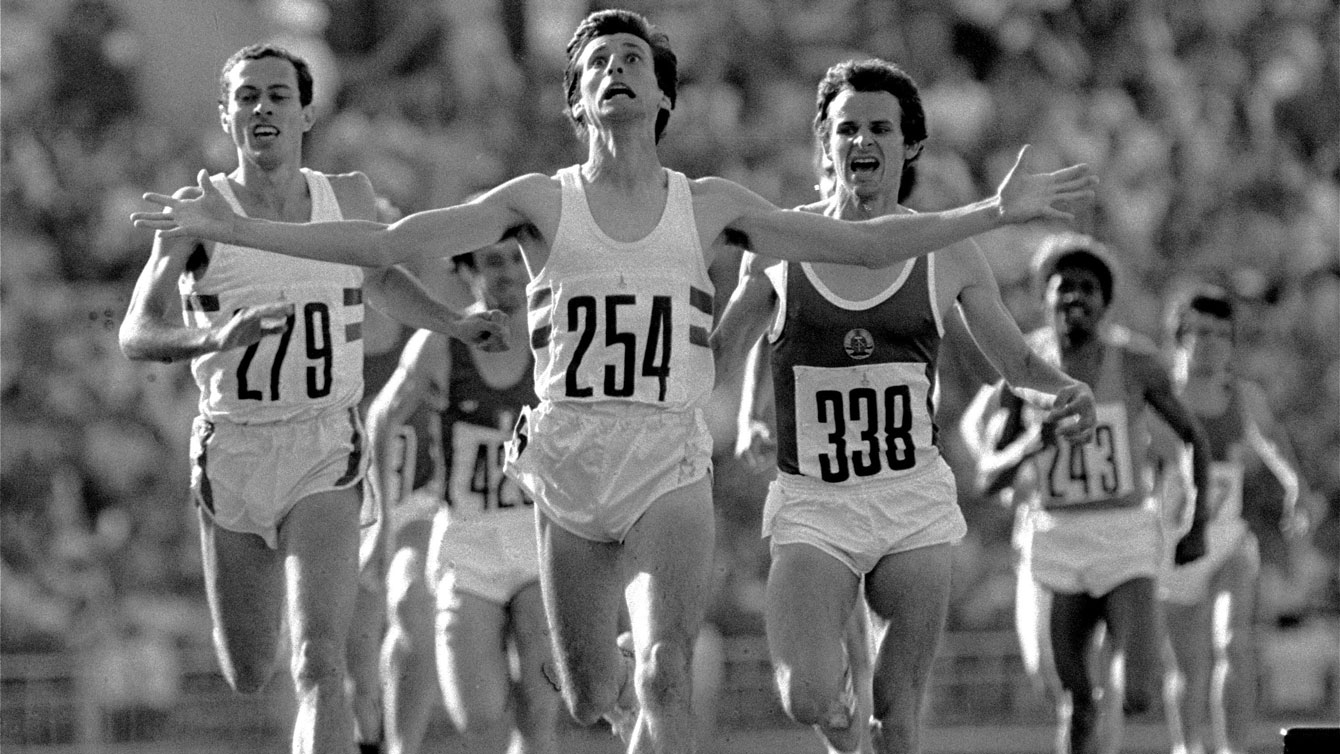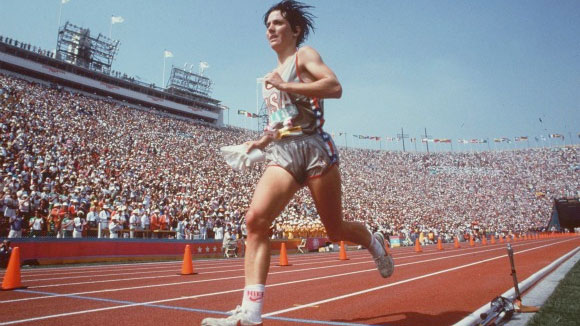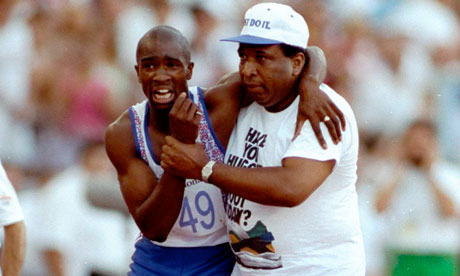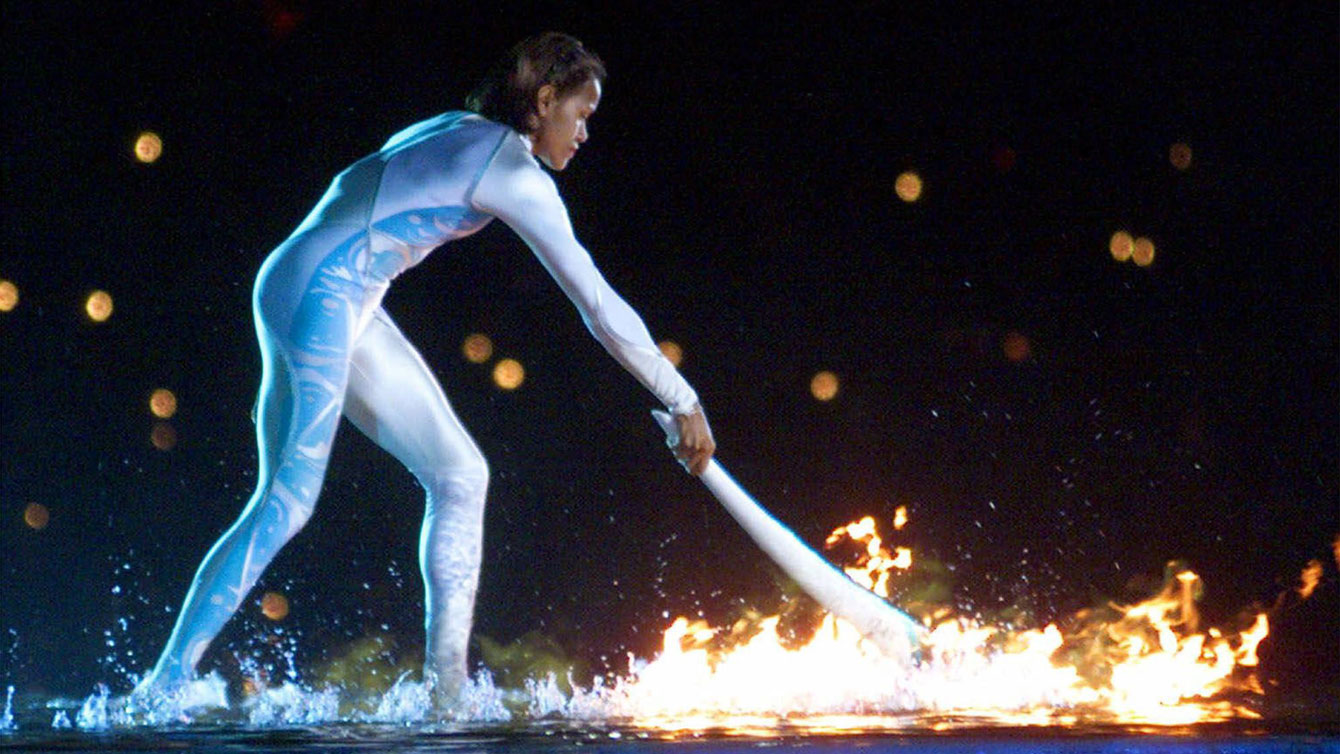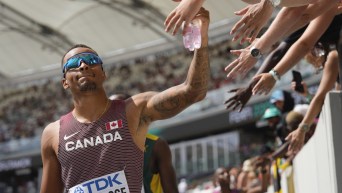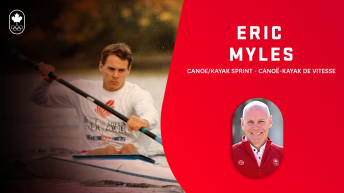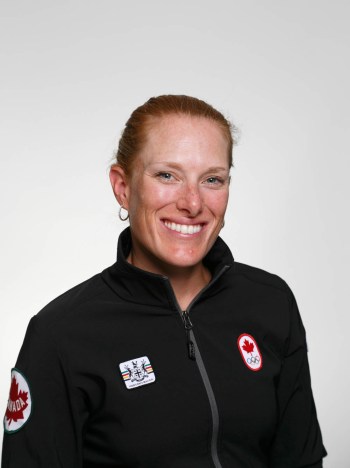Most memorable Olympic running moments
This story is part of an Olympic.ca series on running called Canada Runs.
Befitting its status as one of the original Olympic sports – and with the most events of any sport on the Olympic program – there have been more than 2000 medals awarded in athletics since 1896.
But not all medal moments are created equal. And not all great moments require medals to be won. Here are some of our favourite running moments at the Olympic Games:
Paris 1900
George Orton puts Canada on the medal table
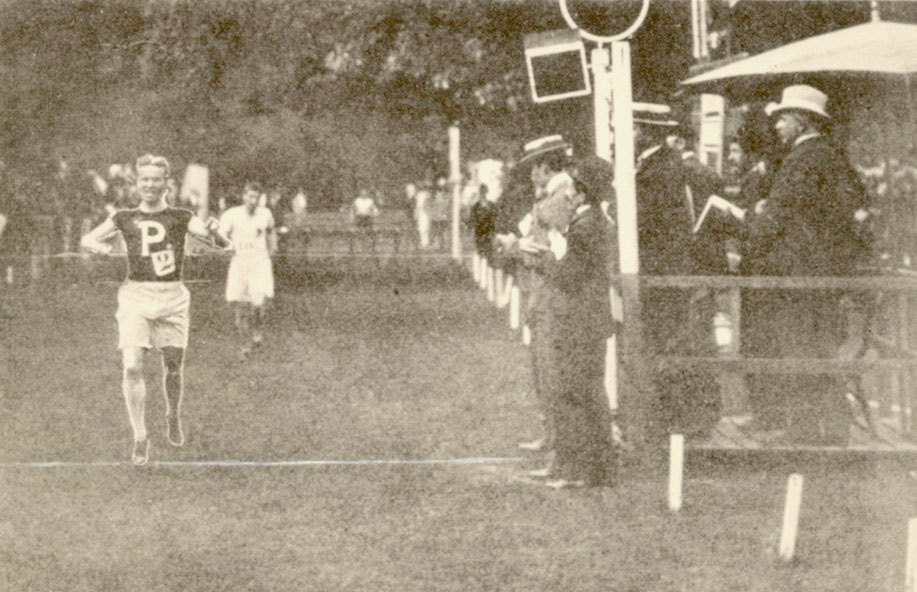
George Orton winning his gold medal at Paris 1900 while wearing University of Pennsylvania colours (Photo: upenn.edu).
In the span of one hour, Orton won gold in the 2500m steeplechase and bronze in the 400m hurdles to become Canada’s first ever Olympic medallist.
Paris 1924
Paavo Nurmi goes five-for-five
The “Flying Finn” won gold in all five events he was entered – 1500m, 5000m, team 3000m, individual cross-country, team cross-country – as part of his nine career Olympic gold medals, an athletics record.
Amsterdam 1928
Percy Williams does the 100m + 200m double
It’s something that’s only occurred 10 times in Olympic history: a man winning gold in the 100m and 200m at the same Games. But Williams is Canada’s only sprinter to achieve the double.
Amsterdam 1928
Canada’s golden girls
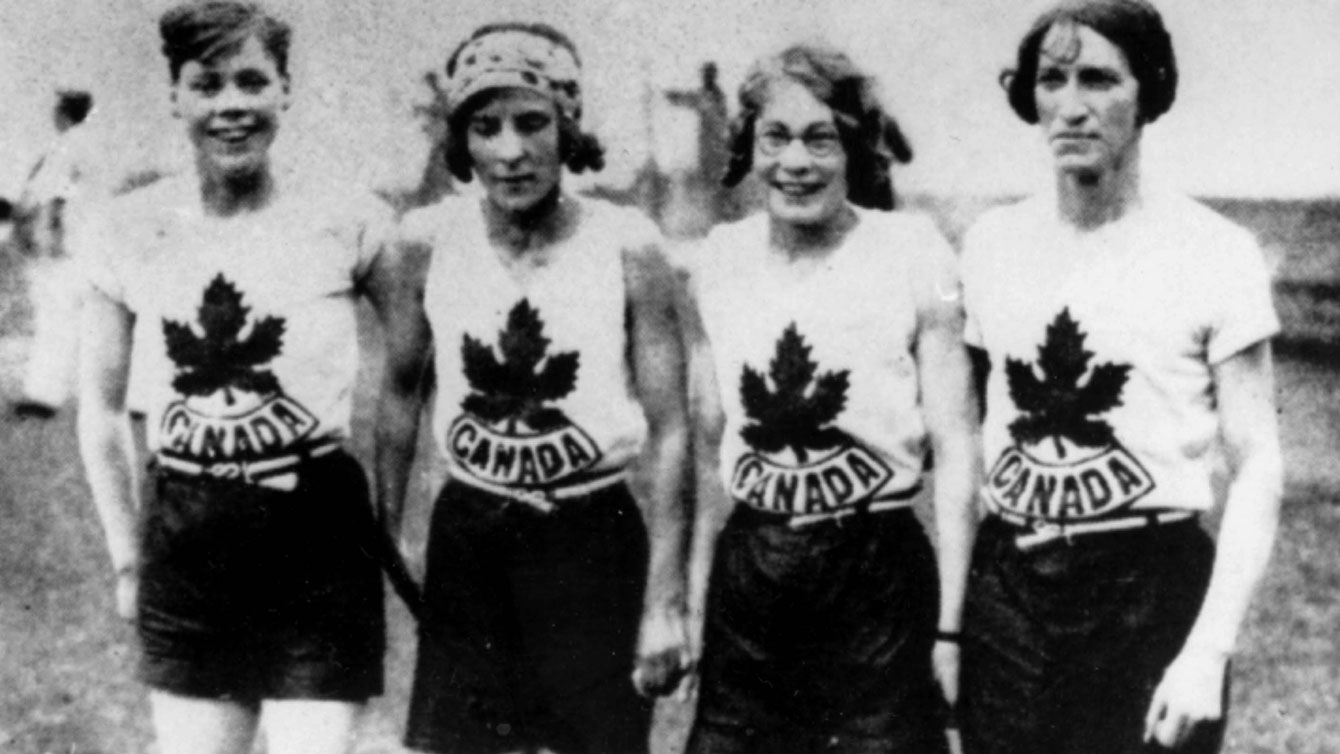
Jane Bell, Myrtle Cook, Ethel Smith, Fanny Rosenfield at Amsterdam 1928 won Canada’s only 4x100m women’s Olympic gold medal.
At the first Olympic Games in which women were allowed to compete in athletics, Canada’s 4x100m squad of Ethel Smith, Fanny Rosenfeld, Jane Bell and Myrtle Cook set a world record to win gold after Rosenfeld and Smith had won silver and bronze in the 100m.
Berlin 1936
Jesse Owens ruins Hitler’s Games
Owens set two world records in winning four gold medals – 100m, 200m, 4x100m relay, long jump – as the American made a mockery of the theory of Aryan supremacy.
London 1948
Dutch housewife dominates
It’s a shame women were only allowed to compete in a maximum of three individual events or Fanny Blankers-Koen could have won more than the four gold medals she did in the 100m, 200m, 80m hurdles and 4x100m relay. She was also the world record holder in the high jump and long jump.
Helsinki 1952
Emil Zatopek’s long distance triple
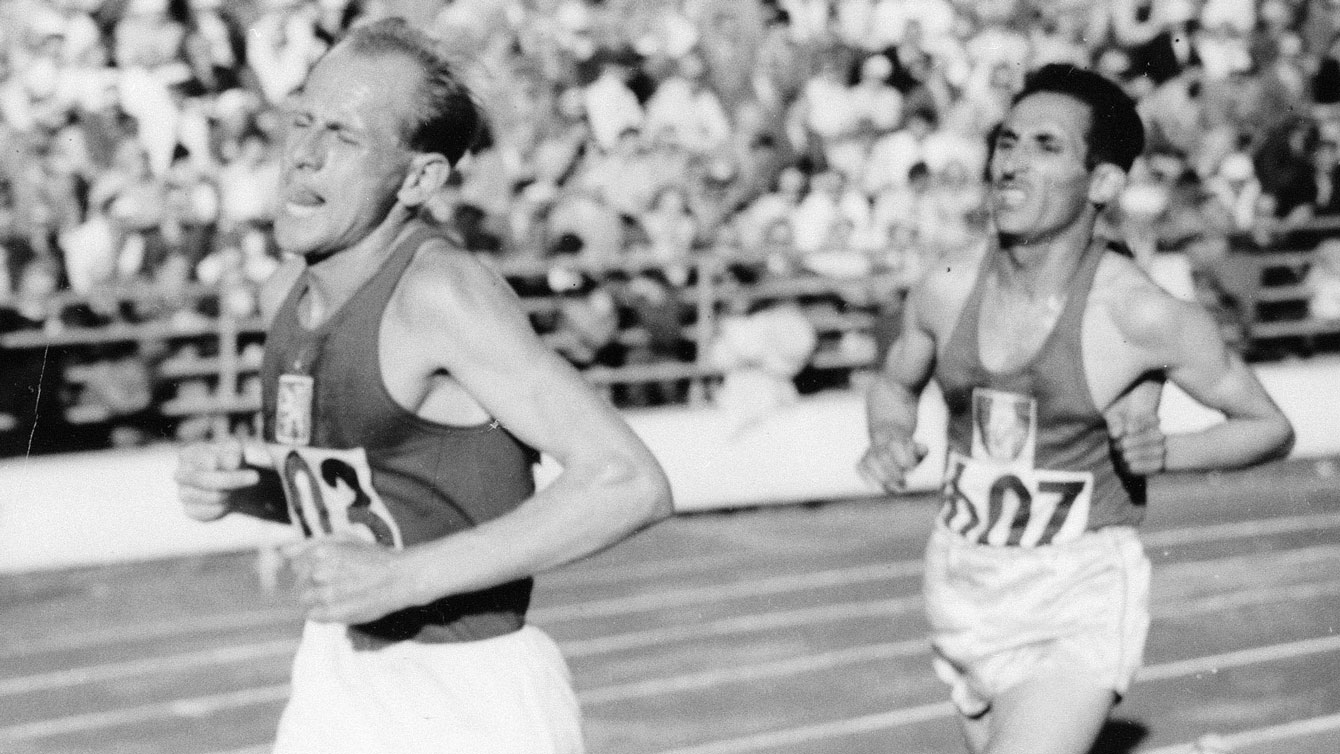
Emil Zatopek (front) grimaced through three Olympic gold medal performances at Helsinki 1952. He was famous for bad form and consistently painful expressions on his face throughout competition.
Zatopek did something not seen before or since, winning gold in the 5000m, 10,000m and marathon at the same Games. Perhaps most remarkable was that it was the first ever marathon for the Czech and he won by two-and-a-half minutes.
Rome 1960
Abebe Bikila goes barefoot in victory
In the first Olympic marathon to be run at night, the Ethiopian became the first black African to win Olympic gold, doing so as he had trained – without shoes. He defended his title four years later, this time in footwear.
Mexico City 1968
John Stephen Akhwari shows true Olympic spirit
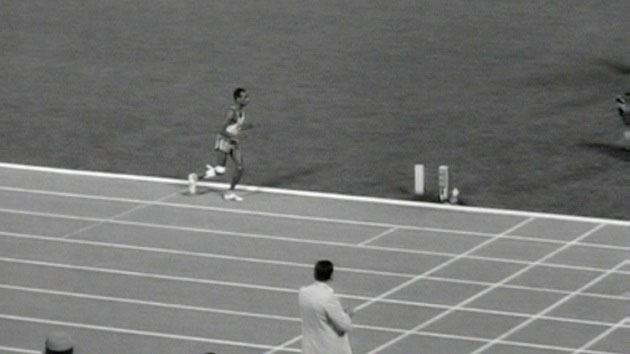
John Stephen Akhwari finishes the marathon despite being severely injured (photo: http://www.martipernau.com).
More than an hour after the race was won, Akhwari crossed the finish line bloodied and bandaged after injuring his knee in a fall. When the Tanzanian was asked why he had not quit he responded “My country did not send my 7000 miles away to start the race. They sent me 7000 miles to finish it.”
Moscow 1980
Seb v. Steve
In a middle distance battle of the Brits, Sebastian Coe and Steve Ovett each won a gold medal, but not the ones they would have bet on. Ovett beat out world record holder Coe in the 800m but then Coe got his revenge by ending Ovett’s 42-race win streak in the 1500m.
Los Angeles 1984
Women finally allowed to run the marathon
From 1932 until 1960, there were no women’s races at the Olympic Games longer than 200m. So it was a moment to be celebrated when 50 women lined up to start their first Olympic marathon, won nearly two-and-a-half hours later by American Joan Benoit.
Barcelona 1992
Derek Redmond gets an assist from dad
After snapping his hamstring just 150m into his 400m semifinal, Great Britain gold medal contender Redmond was determined to continue and hobbled on. When his father Jim broke through security and onto the track to help him finish the race, one of the most inspirational moments in Olympic history was born.
Atlanta 1996
You gotta love Saturday nights in Georgia
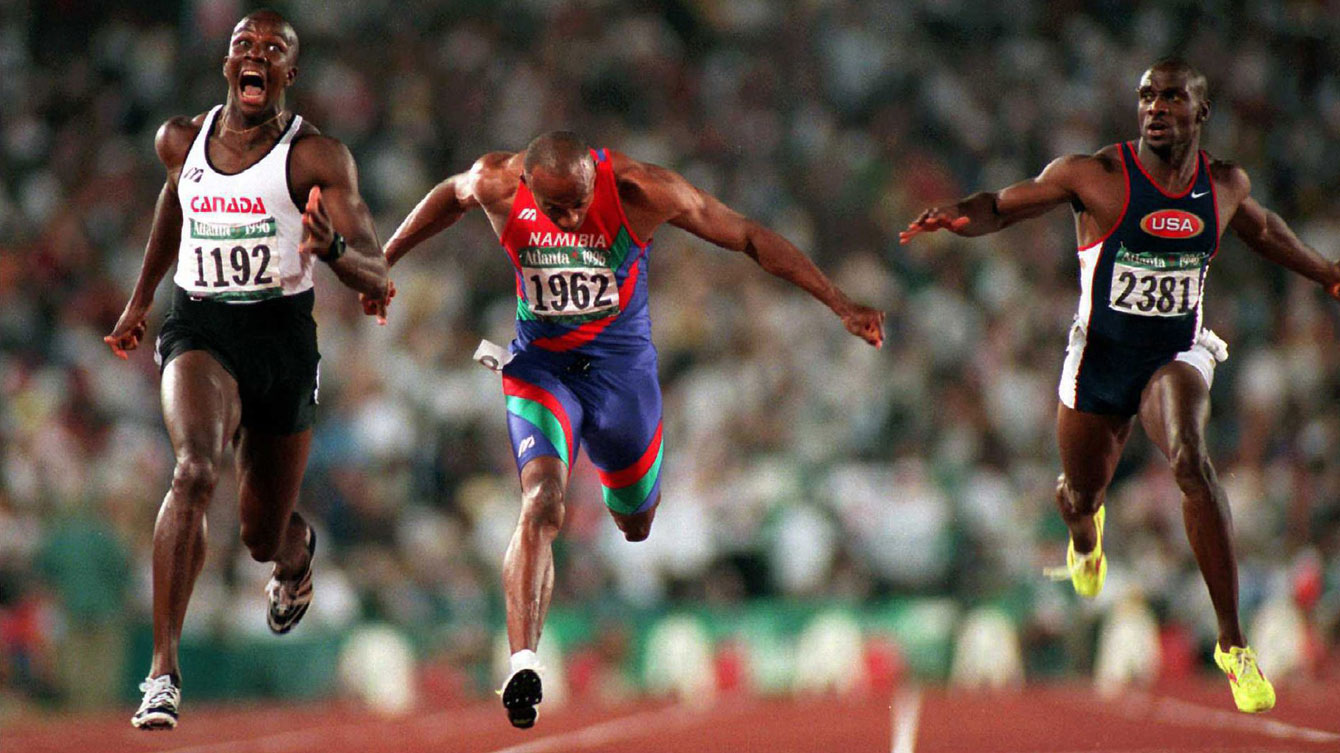
Perhaps the most iconic Canadian Olympic moment in history, Donovan Bailey becomes the world’s fastest man and 100m world record holder.
On consecutive Saturday nights, Donovan Bailey broke the world record to become Canada’s first 100m Olympic champion in 68 years and then anchored the 4x100m team of Bruny Surin, Glenroy Gilbert and Robert Esmie to victory, handing the US their first ever outright defeat in the event.
Atlanta 1996
Michael Johnson’s golden double
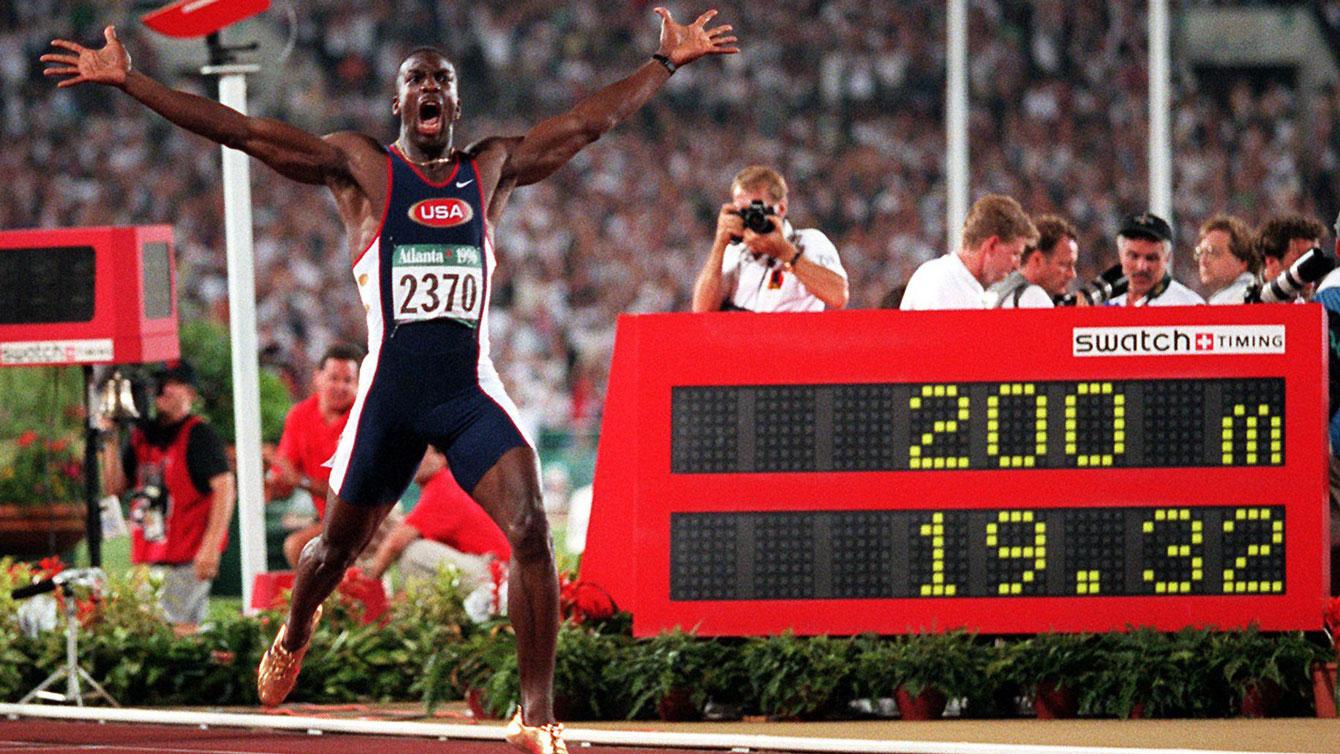
Michael Johnson celebrates setting the 200m world record, shattering and resetting his own previous best from 19.66 to 19.32.
His first victory was the expected one, winning the 400m gold by the largest margin since the first Olympic Games 100 years earlier. But it took a world record run of 19.32 seconds in the 200m for Johnson to become the first man to win both distances at the same Games. His last 100m split was an incredible 9.20 seconds.
Sydney 2000
Cathy Freeman becomes a symbol of unity
At a time when Australia was trying to make amends for its historically poor treatment of Aborigines, Freeman helped move the cause forward. Having been given the honour of lighting the Olympic cauldron during the Opening Ceremony, Freeman in her distinctive hooded bodysuit overcame the home nation pressure to win the 400m by four metres.
Beijing 2008
Usain Bolt becomes an icon
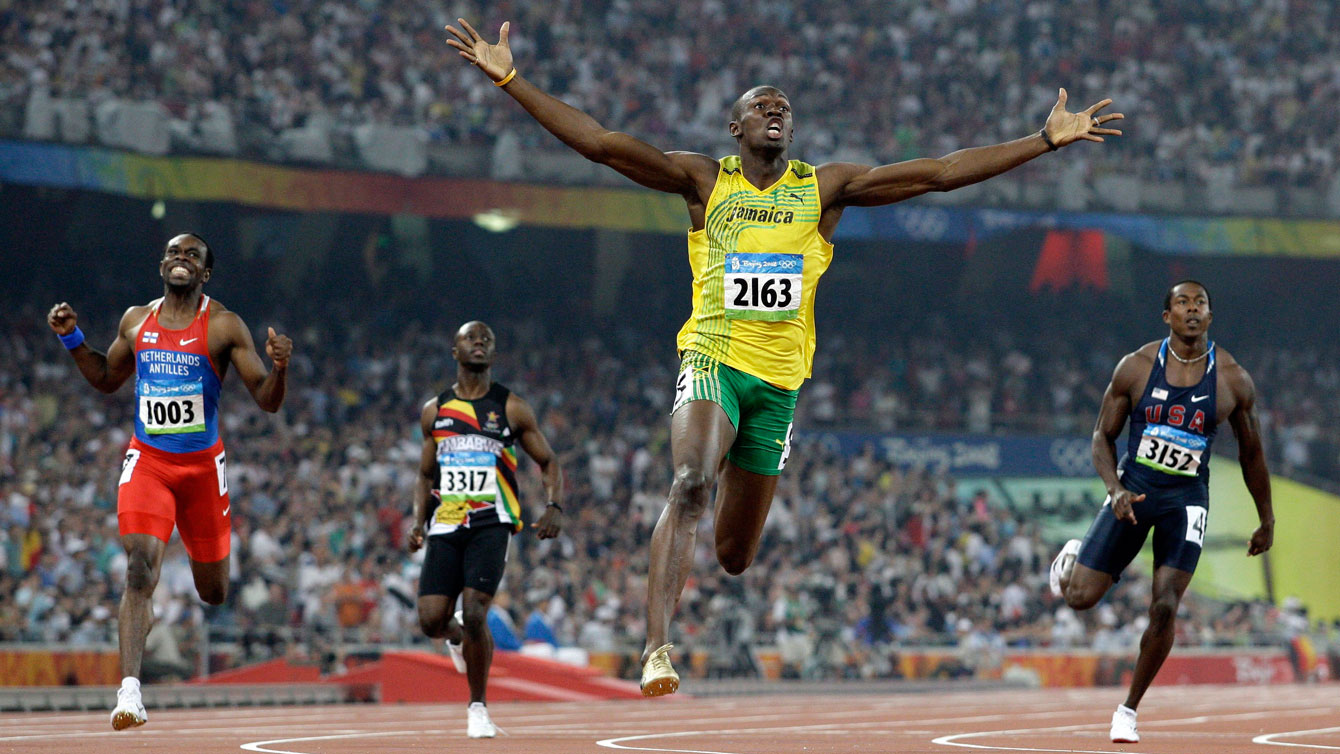
Usain Bolt completes the 100m/200m double at the Bird’s Nest in Beijing in world record time of 19.30 seconds, a mark he lowered a year later to an incredible 19.19 at the IAAF World Championships in Berlin.
Three races. Three gold medals. Three world records. One Olympic first. Bolt ran 9.69 in the 100m despite easing up at the finish. He broke Michael Johnson’s 200m mark that many thought was unbreakable. Then he and his Jamaican teammates took three-tenths of a second off the best 4x100m time to make him the first man to win all three events in world record time.
London 2012
Mo Farah fires up a nation
Farah started the 10,000m in front of a frenzied home crowd that had already seen two British gold medals that night. The slow pace picked up in the final three laps and Farah made his move at the bell to take the lead and run away with the victory. Seven days later he doubled up with the 5000m gold medal, during which the Olympic Stadium crowd sound reached 140 decibels, the same as a jet on takeoff.

